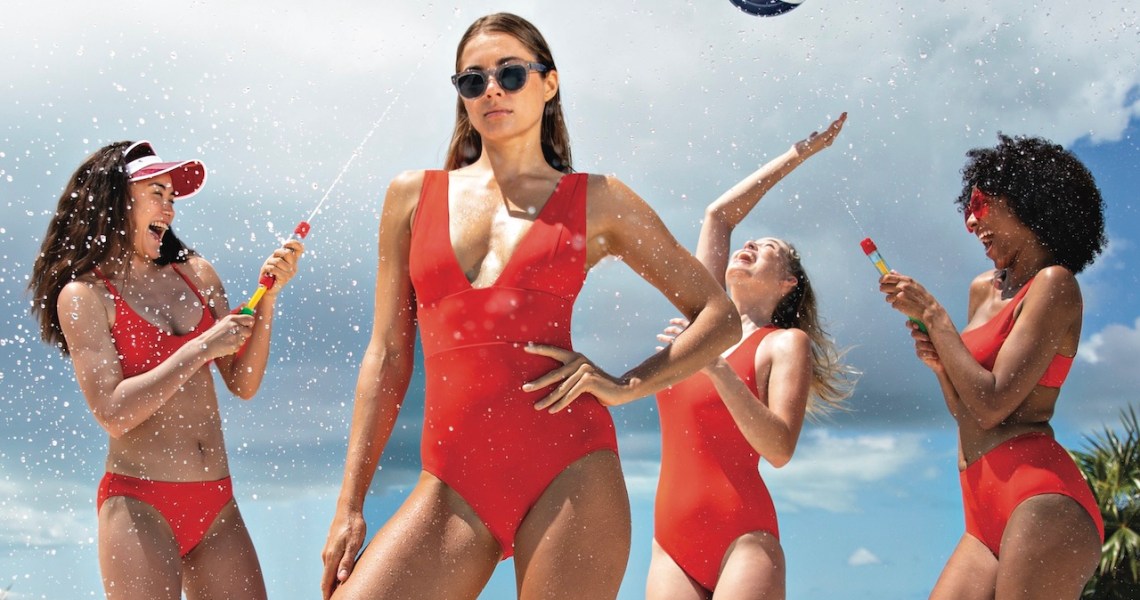After weeks of uncertainty, an emergency coronavirus stimulus bill agreement was finally reached between the Senate and the White House on Tuesday and is expected to come into effect as early as April. While the details are still hazy, some key factors are already clear, including loans for small businesses and incentives for keeping employees on a payroll throughout the crisis. For smaller brands, the bill has been met with a mixture of relief and trepidation.
While the early signs indicate that the bill offers some much-needed provisions, brands are being cautious about factoring it into their plans. Still, Melanie Travis, founder of DTC swimwear brand Andie, feels a sense of relief that any sort of support is coming.
“We’re very fortunate that we’re only e-commerce, so we’re still open 24/7,” said Travis. “We’ve had no pay cuts and no layoffs, and I have no intention of doing either. But it’s true that revenue is softening across all of e-commerce. Payroll relief would be a welcome provision. A lot of my peers have had to lay people off or shut things down, and I would love to see more robust assistance for them.”
The bill includes at least $300 billion for small businesses, though the exact parameters and qualifications of the loans are still unclear. It’s by far the largest stimulus bill ever proposed in the U.S.
“The thing that worries me is this: The devil is in the details,” said Kristen Fanarakis, founder of DTC women’s luxury brand Senza Tempo and former Wall Street trader. “How complicated will these loans be? What will the stipulations be? How much interest? The atelier I work with [Lipstick Prophet in Los Angeles] is paying all their workers for 40 hours a week even when they’re closed. It’s a small business, and small businesses don’t have consultants and lobbyists to help them through something like this.”
One of the most crucial elements of the stimulus bill is relief for companies that continue to employ people during the crisis. It’s a difficult decision, particularly for brands with a strong physical retail presence, who are receiving no income from their stores. Some have begun shifting those retail employees to assist with other parts of the business, while others have put time limits on how long they’ll continue to pay their employees, some capping it at two weeks.
Underwear and leisurewear brand Lively has closed all of its stores and has promised to keep paying its employees for as long as possible, said Michelle Cordeiro Grant, Lively’s founder.
Ad position: web_incontent_pos1
“This is a moment in time, but we don’t know how long that moment will be,” she said. “We don’t want to knee-jerk and release all our amazing employees who we’ve invested so much time in. We value our team and they’re an important asset. Plus, it takes a lot of time to rebuild a team. Letting people go would be the easiest decision right now, but it’s not the right one. We need to think strategically and see what the government is going to offer.”
Senza Tempo does not have physical stores, and Fanarakis has not had to let anyone go. Even so, the relief for keeping people employed is welcome.
“It does give me some relief knowing that there is some form of help coming,” Fanarakis said. “I’m worried more about my factory, which is also a small business, than about my own team. They could be forced to furlough their workers if things are really bad, and I need my atelier to survive. Their team is an extension of my team. So knowing something is coming is a relief, but we need the details first.”




